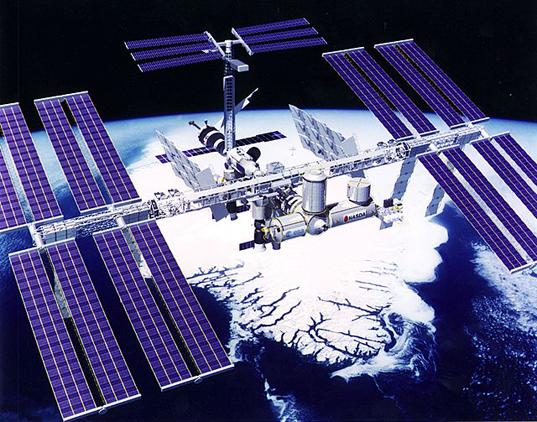Most students were not alive during the 1970’s oil crisis, when people waited for hours to fill up their tank, but dependence on fossil fuels is still a huge problem in the U.S.
A study group of the Paris-based International Academy of Astronautics said that the technology for orbiting solar power plants could be available within the next ten to twenty years, according to Reuters.
The study was led by John Mankins, a 25-year NASA veteran, who believes that the sun’s power could be beamed down to Earth from a satellite to potentially provide an alternative to oil.
“It is clear that solar power delivered from space could play a tremendously important role in meeting the global need for energy during the 21st century,” said Mankins to Reuters.
One of the main advantages to solar power stations in space is that they would collect energy 24 hours a day, which is impossible on the planet’s surface. Another obvious positive is that solar power does not harm the environment.
“There is a global need for an increased energy generation that does not have an environmental impact,” explained Matthew Perren, head of innovation at Europe’s largest space company Astrium, to The Telegraph. “The real advantage of space solar power is that it can provide power on demand as we can essentially point the laser beam where ever we like on the earth below the orbit.”
Although it could cost hundreds of millions of dollars to put into practice, the study believes that the project could pay for itself after only 30 years.
Earlier this year, NASA offered California-based Artemis Innovation Management Solutions a $100,000 contract to pursue the project. And in 2009, they awarded a company called LaserMotive $900,000 to research how to make laser beams send the energy from space back down to Earth, according to MSNBC.
It might be a small amount to start their research, “but at least it’s a start,” said Mankins to Reuters.
“Much of the technology we need has already been tried and tested in existing satellites and spacecraft,” said Perren to The Telegraph. “But there are technical difficulties that still need to be overcome such as improving the efficiency of converting the energy and increasing the power of the laser we can build.”
However, Astrium and Artemis are not the only firms to explore solar-based energy.
In September, the Japan Aerospace Exploration Agency announced a $21 billion plan to send satellites with solar panels into orbit that could provide energy for up to 300,000 homes on Earth, according The Telegraph.
The Japanese plan is another example of how NASA is falling behind the rest of the world in terms of space exploration. Since the shuttle program ended this summer, NASA has to pay Russia’s space agency $50 million per astronaut they send to the International Space Station, according to the Huffington Post.
NASA might be looking for a new direction, but they have not given up entirely. Air Force Col. M.V. Smith, who led a Defense Department study on space-based solar power for the military, believes that the project needs to attract private companies before NASA endorses it.
“It’s a new mission area,” said Smith to MSNBC, “and in this austere budget era … I think what you’re going to see is that the commercial community is going to step up to the plate and do minor studies that would bait the interest (of NASA).”
However, once it catches the full attention of NASA, it is still important to remember that the goal of space-based solar power is to offer another alternative resource.
“It is important to remember that we are not looking to take the place of power stations on Earth,” said Perren to The Telegraph, “But to provide another piece of the puzzle in finding alternative energy sources.”

